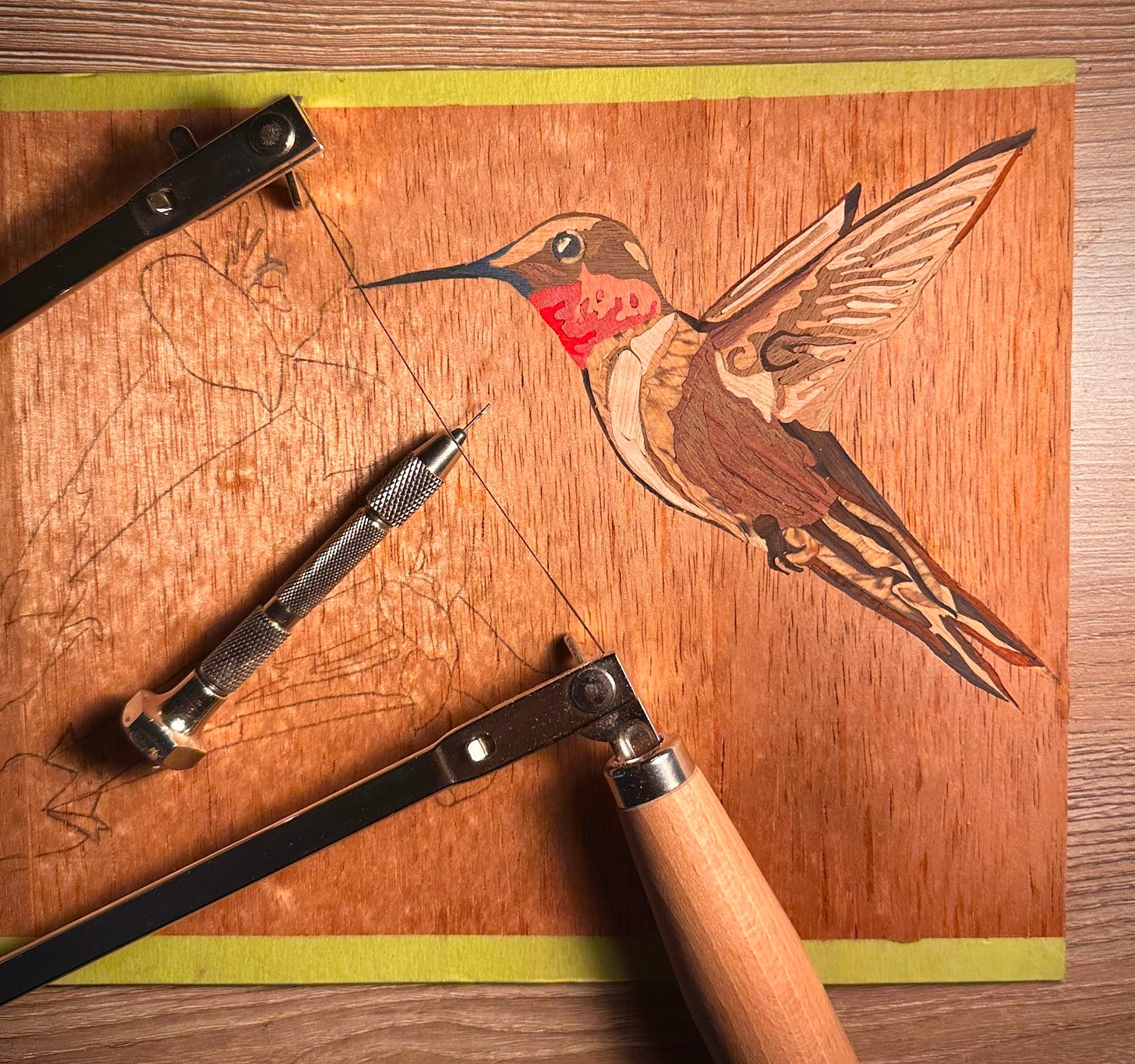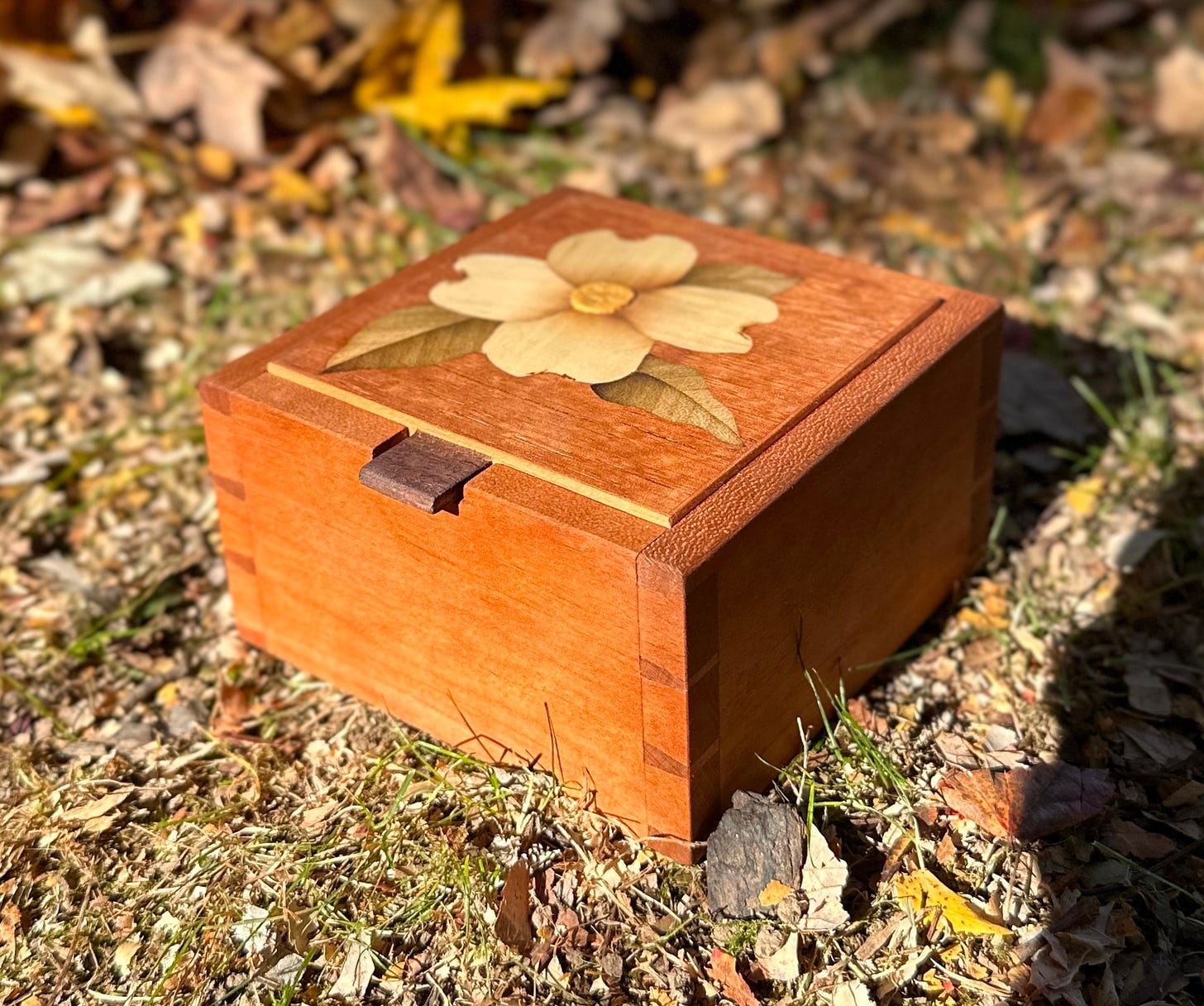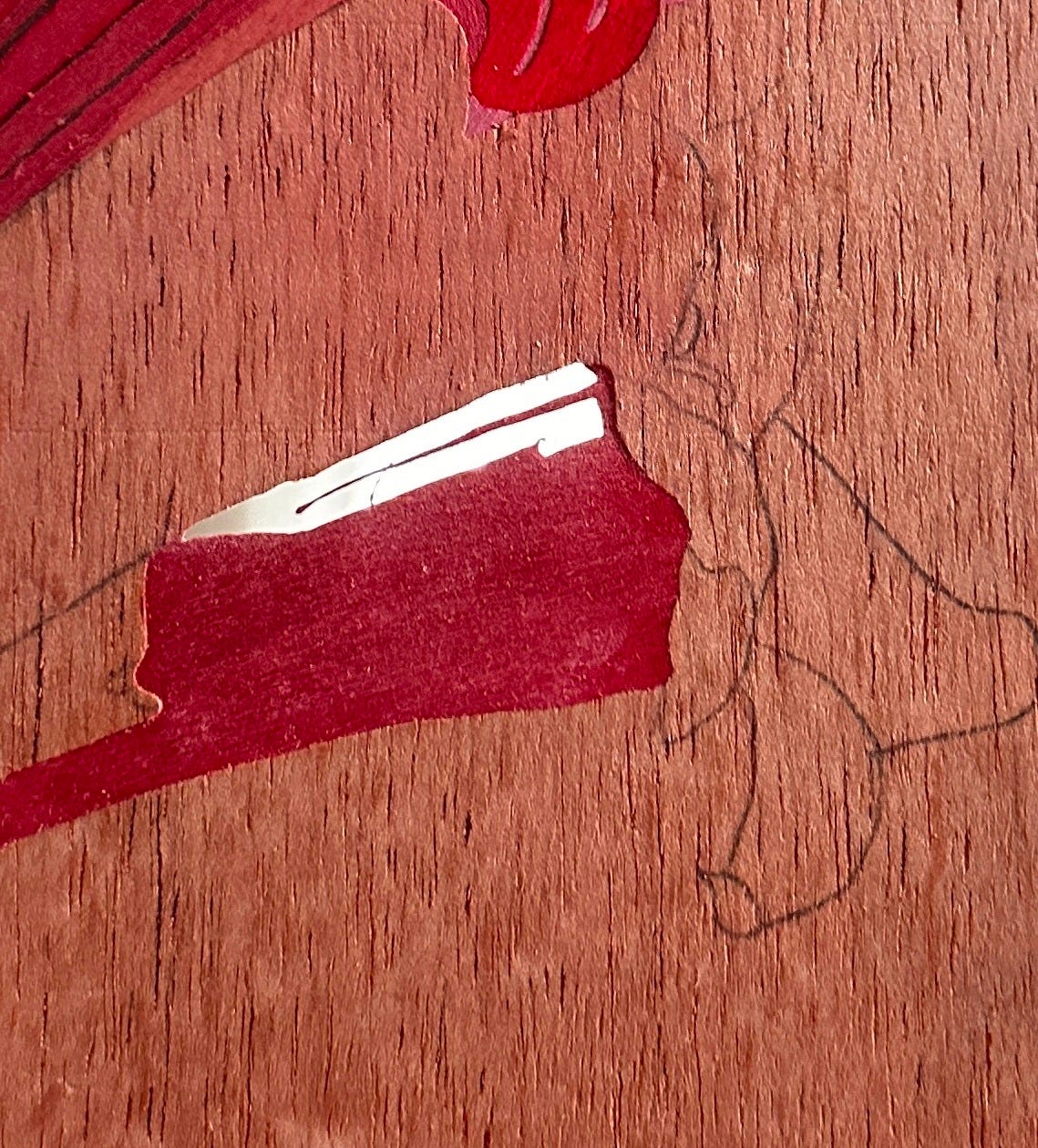I don’t know what it is, but lately I’ve been feeling stuck in a bit of a woodworking rut.
That may come as a bit of a surprise to anyone that follows me. I’ve still been churning out fairly decent work, the book is coming along as planned, other work is in the queue, and I’ve been teaching quite a bit. I even just got back from (what I consider) a vacation full of woodworking, shooting a couple projects for Popular Woodworking.
But what we outwardly project can often be deceiving — while my hands have been quite busy, my mind hasn’t been fully into my work. I find myself asking “eh, but why?” more and more when considering projects, and I have to admit my once work-filled nights in the shop have instead been replaced by doom scrolling on my phone until I pass out.
A lot of this feeling, I think, comes from my ennui with seeing and doing the same things in woodworking over and over. I mean that both personally (“seriously? another dang box, Albert?”) and with the craft in general (“does the world really need another generation of woodworkers making the same old stuff?”). A lot of it is also certainly a mental health issue. I’ve had anxiety my entire life, and last summer I also decided to pick up some major depression. I have that mostly in check, but it comes in waves and I’m definitely riding one at the moment.
I was recently speaking with my friend Shane about all this and told him that I thought one solution might be to take on a grand project. Something that would take me years and require skills that I haven’t yet acquired to complete. A horror themed bedroom set made in holly comes to mind….
That would certainly address my boredom with the woodworking world — I don’t think I’ve ever seen something like that simply because no one is stupid enough to make it (yet) — and I also believe it would help with the depression. In the past, woodworking has been my go-to for getting out of depressive episodes. If I can find something to excite me in my woodworking, chances are it’s going to greatly improve my mental well-being.
The only issue is I absolutely, 100 percent do not have the time to dedicate to a grand project. I’m already far too overloaded as is, have a serious problem turning anything down, work a full-time day job, and would also very much like to remain an active member of my family. Grand projects are for the rich, lonely, and retired.
But maybe I don’t need the grand project itself. The purpose of doing the grand project, at least in this case, isn’t to get the product at the end. It is instead to: 1) explore new aspects of woodworking, and; 2) push my skills to the limit and beyond. Those two things can be obtained easily enough in work I’m already doing by just approaching things differently and shifting my perspective.
I think a lot of times in woodworking (and life in general), we can get stuck in certain patterns because they produce reliable, acceptable results. But they aren’t necessarily fulfilling, and they can ultimately keep you from advancing. I’m absolutely guilty of this. There are definitely times when I’m planning out a piece where I will scrap certain details simply because they don’t fit into my established way of doing things. The implicit assumption I’m making here is that because I don’t know how to do something (or know how to do it easily), it isn’t worth doing.
Now, if woodworking is how you pay the bills, reliable, acceptable results are probably the only thing you’re truly concerned about. Figuring out how to do that thing you don’t know how to do may very well not be worth doing. But if you’re a hobbyist or use the craft as a means of personal fulfillment, this can be a real trap.
If I’m spending my time doing this to better myself, then why am I taking the easy path? So I have another fucking box that I don’t need? Another marquetry panel of the same old leaf I’ve done twenty times? Sure, I guess it’s nice to be able to make those things quickly and efficiently, but who cares?
I’ve always said I’m much more concerned with the process aspect of woodworking than the results. So why am I repeatedly taking actions to ensure that the process is unchallenging and the results are assured?
All these questions and thoughts were buzzing through my cavernous skull when I sat down to start a project the other day. My sister asked if I could make her a gift for her boss. She didn’t have any real parameters other than it had to have marquetry of a hummingbird. She also didn’t really have a deadline, and since it’s my sister, budget wasn’t a concern. Given the loose nature of the project, I figured now was a perfect time to change up my approach and see if it got me out of my rut.
Normally when I do a marquetry panel, I plan everything out in advance. The pattern is drawn onto tracing paper and is constantly being reapplied to the field veneer as I cut sections away. Wood species for certain cuts are chosen in advance so that I ensure I have enough of a particular veneer. Sometimes I’ll even count the total number of pieces and write it in the corner of my field. The point is that before I even start, all the critical choices have been made and planned.
For this project I decided to be much more extemporaneous. Instead of drawing every detail of the hummingbird on my field, I started with just a simple outline. After making some basic cuts to establish the figure of the bird, I then began to fill out the detail. Sections like the beak, eye, and wings were all filled out without any prior planning.
The first thing I noticed was how much fun I was having. Instead of the project feeling like a task list with boxes to tick off, it felt like I was just…painting. I’d look at my bird, check a reference photo, pick up some veneer, and lay down a piece where I felt appropriate. If it didn’t work out, no big deal. I’d just keep laying pieces down until it did.
Instead of stressing over each and every cut, my mind was more focused on the process of filling out the image. I have absolutely no idea how many pieces are in the final product and I don’t care. It took as many pieces as it took to look good. And since I was having fun while I was doing it, I wasn’t paying attention to how much time I was spending on it at all.
The other benefit is that this work is undoubtedly better than anything I’ve done before. It’s fairly obvious now that I’ve been holding myself back.
For example, in the past I have shied away from cutting very fine lines in my marquetry, simply because I was afraid of failing. With my new perspective on things, I can now see how utterly stupid that was. If I try to cut a skinny line and it doesn’t work out, I can always just insert a new piece over the error. Sure you have a mistake to fix and it’s another cut, but it literally only takes a minute (if you’ve never tried marquetry before, I’m not being hyperbolic here — it’s very quick).
I also think that since the image I’m making was never designed on paper and only really exists in wood, the composition is better. It’s hard to describe what I really mean here, but since I’m not bound by a paper drawing, I’m able to better focus on the image taking shape in the wood itself.
In working through this panel, I really got the kick I desperately needed to get me thinking positively about woodworking again. The joy is back, at least for now — I’m eager to finish writing this post so I can get back to sawing. And more importantly, I’ve discovered a fresh new way of doing things that I think is going to not only make woodworking more enjoyable for me, but also improve the quality of my work.
Oh! In doing all that work I also discovered some pretty freaking cool stuff that has me all giddy. Hopefully I’ll have more on that to share in the near future (it has to do with some really cool properties of end grain veneer that I hadn’t considered before).
I’m not sure if my boredom with woodworking is an underlying issue that is going to come back, and my depression sure as shit isn’t going to be cured with marquetry, but changing things up certainly injected some joie de vivre back into my woodworking life.
I guess I can always look to this post for some hope if I ever get back in a rut.







Really nice and relatable (at least to me) post, Albert. I appreciate your candidness. I also can get a bit bogged down with the ‘why’ and ‘what’s the point’ in certain activities from time to time. My only note is that depression is not a decision, but you know that, so be kind and patient with yourself. :)